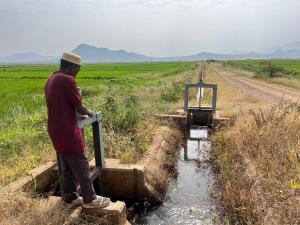Test project Pesticides and Protection Tanzania
testing out building a project
COVID-19 Alert Project

This essay will provide a portal into work in response to COVID-19.
pece_annotation_1478002854
tamar.rogoszinskiThe author of this article is Adriana Petryna. She is an Edmund J. and Louise W. Kahn Term Professor in Anthropology at UPenn. She teaches primarily anthropology courses because her main interest lies in anthropological theory and methods, the social studies of science and technology, globalization and health, and medical anthropology. Her research focuses on the effects of cultural and political forces on science and medicine. She has written several books and articles.
pece_annotation_1472841952
tamar.rogoszinskiIt is clear from the bibliography as well as the notes, that Schmid is very educated in this field. She has done immense amounts of research (including citing herself), which shows that this is being written by an expert, and not a random scientist with an opinion. She provides information within her notes that help point someone seeking further information in the right direction. She also cites multiple sources form the same author, showing knowledge of other colleagues or experts within the field who may provide good insight and information.
pece_annotation_1479071892
tamar.rogoszinskiThe main finding or argument of this article is that a patient's culture will significantly impact a patient's narrative and description of their medical history. Each culture has its own stigmas and norms that can affect the way a patient views their own medical history. This is an important thing that doctors should recognize when analyzing and assessing a patient's situation and history. Also, there is discussion about how an illness can impact an individual physically, mentally, socially, and otherwise. Public perception is an important part of this article.
pece_annotation_1473445571
tamar.rogoszinskiThe main public health issue mentioned in this article is the cholera epidemic that was caused by UN Nepalese workers, and the lack of accountability by the UN. The article discusses how the UN is "immune" to a court's decision, despite its obvious injustice for Haiti. In spite of the distrust by world leaders and NGOs on the Haitain government to handle a trust fund meant to help its citizens, the money that has gone directly to them has been used to increase childhood vaccination and save HIV patients. This shows their ability to manage funds and the issues that arise when allowing people overseas to handle the money meant for efforts in Haiti.
pece_annotation_1480345763
tamar.rogoszinski- MSF
- Policies about gender based violence
- rape rates aroudn the world




the rice irrigation scheme, Pare Valley, Tanzania